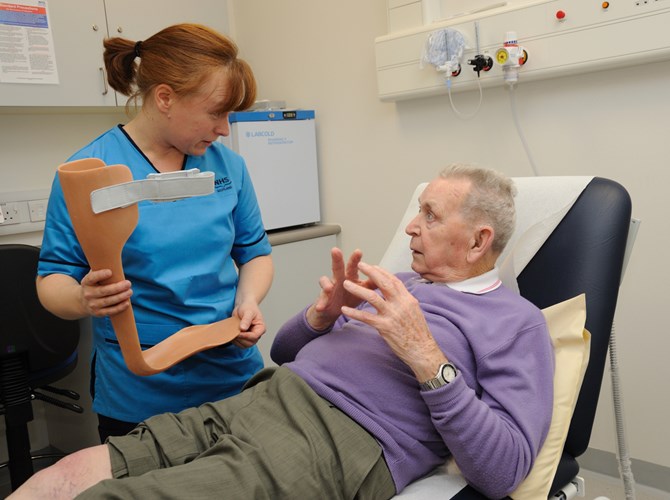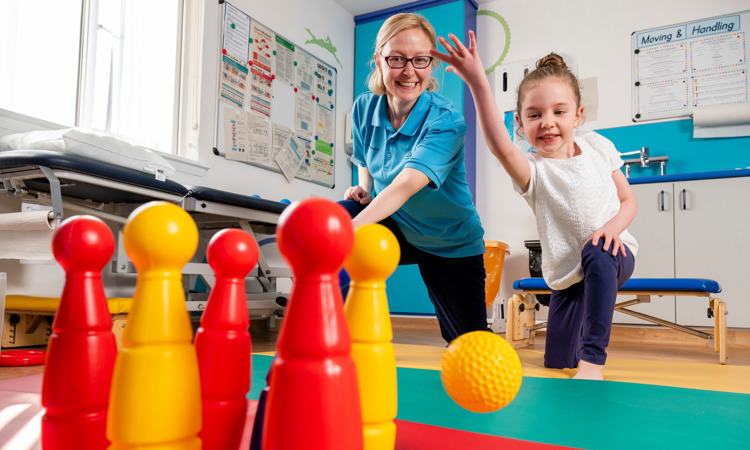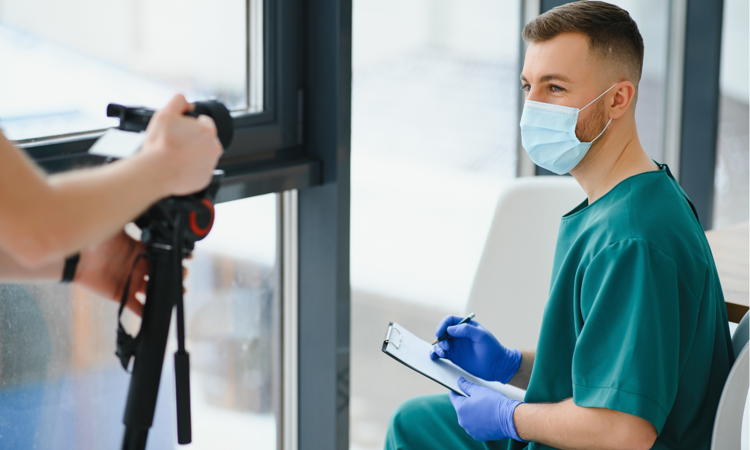How to become an orthotist
To become an orthotist in the NHS, you must complete a pre-registration undergraduate degree programme approved by the Health and Care Professions Council (HCPC).
What is an an orthotist?
Orthotists work with people of all ages who need splints, braces, or special footwear to help improve their walking or to reduce pain. These devices, called orthoses, also help to correct nerve, muscle, and bone deformities.

Starting your career as an orthotist
Choosing subjects at school
To get on a course that could lead to a career as an orthotist, useful subjects include:
- Human Biology
- Physics
- Engineering Science
- Maths
- English
Speak to your guidance teacher about subjects offered at your school.

Work placements and volunteering
You may find it helpful to get some healthcare experience by doing a work placement or volunteering. You’ll get training, increase your knowledge, and learn new skills. This could help you when applying to university, college or a new job with NHSScotland.
College and university
Most universities accept a wide range of qualifications, giving you the option of applying directly from school or going to college first.
At college, you could do an HND in Engineering Systems.
Widening access
Widening participation supports adult learners who want to go to university. If you’re an adult with few or no qualifications, you could get into higher education through the Scottish Wider Access Programme (SWAP). Many universities also provide access programmes to help you get the degree entry qualifications you need.
Pre-registration undergraduate degree programme
In Scotland, the University of Strathclyde offers a four-year pre-registration undergraduate programme in Prosthetics and Orthotics, approved by the Health and Care Professions Council (HCPC).
After graduation, you must register with the HCPC. You can then apply as a newly qualified orthotist for vacancies in the NHS.
Get to know the role
As an orthotist, you’d provide aids to correct problems or deformities of a patient’s nerves, muscles, or bones.
You'll assess your patient’s condition to design and fit orthoses to aid movement, stop deformities from progressing, or relieve discomfort.
Orthotists treat people from head to toe for a variety of problems, including:
- back pain
- knee pain
- sports-related injuries
- foot pain
- limb or spinal deformity
Using measurements, casts, digital imaging, computer-aided design, and computer-aided modelling, you would design and fit surgical appliances such as:
- braces
- callipers
- neck collars
- splints
Working with doctors, nurses, physiotherapists, and occupational therapists, you’ll provide advice to make sure patients receive appropriate rehabilitation and aftercare support.
Tasks include:
- assess a patient's needs
- take measurements
- fit surgical devices
- use the latest techniques and technologies to design orthoses
- explain designs to orthotic technicians so the final product can be produced
- follow up with patients
- carry out assessments to make sure devices function properly
- make adjustments or repairs if needed
- supervise students and healthcare support workers
You'll need these skills:
- caring
- collaboration
- communicating
- problem-solving
- persuading and motivating people
- critical thinking
Orthotists work with other healthcare professionals, including:
- orthotic technicians
- physiotherapists
- occupational therapists
- doctors
- nurses
You could work in:
- hospitals
- private clinics
Learning and development
During your career, you'll have to keep your skills and knowledge up to date with continuing professional development (CPD). The British Association of Prosthetists and Orthotists (BAPO) provides courses, conferences, and seminars where you can exchange ideas and update skills.
Career progression
With training and experience, you may choose to specialise in a particular area of practice, such as:
- sports injuries
- working with children
You could also progress to senior and specialist orthotist roles. As head of an orthotics and prosthetics service, you would be responsible both for a team of staff and for managing a budget.
There are also teaching and research opportunities.
Professional bodies
When you become a qualified orthotist, you must register with the HCPC to work in the NHS. You can also join the British Association of Prosthetists and Orthotists.
Navigate page

You can be an AHP
Discover the range of AHP careers you can choose in the NHS.
Allied health professions
NHSScotland Careers blog
Our blog includes how-to guides, case studies, and career resources.
Discover more